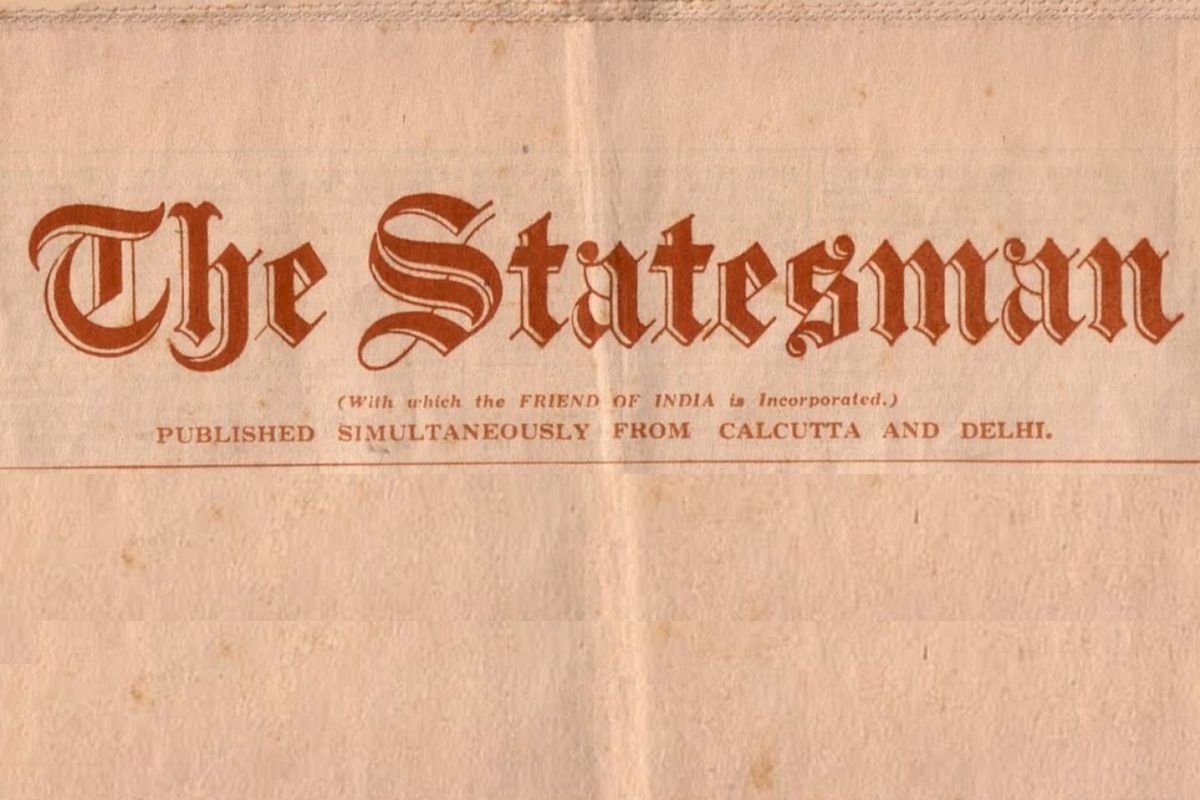A New Day, A New Dawn
There is a surprise for the readers. A special Poila Boishakh gift from none other than West Bengal chief minister Mamata Banerjee. Who has written a piece for this special edition.
On this day a century ago, these were some of the news items The Statesman readers got to read about India and the world.

OCCASIONAL NOTE
We have heard little or nothing of the distinguished Swede, Dr. Sven Hedin, since the close of the war, and considering the ingenuous thoroughness with which he put all his money upon “the wrong horse” in that connection this is hardly surprising. The genial doctor has been asserting himself again, recently, however, and it is interesting to observe that, like the Bourbons, he has failed to draw any useful lesson from the issue of events. “The war,” he writes – and his view has been widely published in Germany – “is far from being finished. Germany is not really beaten, and she will accomplish great things. It is on the side of Russia that her future lies. When that is accomplished she will be the greatest Continental power that the world has ever seen.” The worthy Swede apparently cannot bear to think of losing the whole of his stakes, and he is determined to put heart into the beaten horse if he possibly can. “Germany will see,” he continues, “how much she owes to Prussia – imperialism, militarism and the iron discipline which made for her greatness. Therefore, Germany will turn to reaction, and the reaction will be terrible.” The outlook would appear to be equally cheerful for Germany and for Russia. Dr. Hedin’s prophecies must be considered, however, in the light of his previous efforts as a political and military tipster; and, judged by that criterion, they are hardly calculated to impress the sporting public.
ANCIENT INDIAN ART
Advertisement
There is tendency to regard the archaeologist as the extreme type of musty scholar who spends his days burrowing among ruins merely to produce a few broken pieces of potter or mutilated fragments of sculpture. But the truth is that the perfect archaeologist must combine his scholarship with a fine streak of imagination. Then when an opportunity occurs, he can recall for us a whole forgotten civilisation from a single piece of stone. Such an opportunity has occurred in an exhibition of ancient Eastern art at the Leicester Gallery. Take for example, the red stone sculptures from Muttra, which date from the third century of this era. They evoke a whole series of mysteries connected with the early Buddhist art of India, which some wise men used to tell us was invented by Greek settlers in Bachia after the Oriental expedition of Alexander in the fourth century B.C.
PROFITEERING IN LAND IN BOMBAY
At the meeting of the Bombay Corporation this afternoon what promised to be an interesting debate on profiteering in land in the city came to an abrupt termination. At the last meeting of the Corporation Dr. Fiegas had moved that the President be requested to address the Government representing the desirability of taking steps to prevent profiteering in land in Bombay. The mover, resuming his speech in support of his motion today, drew a picture of profiteering in land, quoting specific instances. When he resumed his seat the President enquired who was going to second the motion. There was a few seconds’ hesitation on the part of would-be seconders and the President ruled that the motion dropped for want of a seconder.
MADRAS CHEATING CASE
MADRAS, OCT 10
The further hearing of arguments was resumed today in the Town Police Court of the case against Mr. H. Lockley, late works manager of the Madras Engineering Works, Royapuram, who stands charged with dishonestly assisting in the disposal of stolen property belonging to the S.S. Ural, and with having cheated Messrs. Oakes and Co., in respect of Rs 1,000 in connection with the same transaction. After hearing arguments His Worship reserved judgment until Monday.
RECOLLECTIONS OF LORD HALDANE
The Westminster Gazette publishes the recollections of Lord Haldane from 1906 to 1914, when he was War Minister. Lord Haldane relates the steps he took to reorganise the army in order to cope with the apprehended German peril, and also relates his conversations with the ex-Kaiser and Von Bulow when he visited Berlin in 1906, which are already known, also the ex-Kaiser’s visit to Windsor in 1907, when the proposal to hold a conference in Berlin between Britain, French, Russia and Germany relative to the Bagdad Railway interests was accepted but was subsequently rejected by Berlin. Lord Haldane expresses the opinion that if the Bagdad question had been settled one great obstacle against reconciling German with British and French interests would have disappeared.
Advertisement